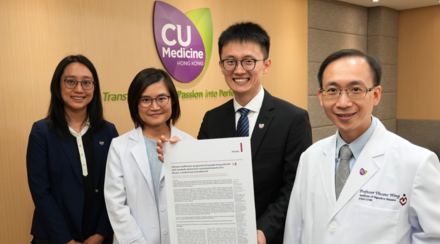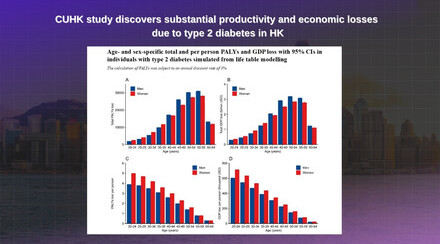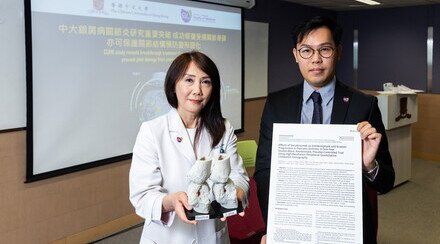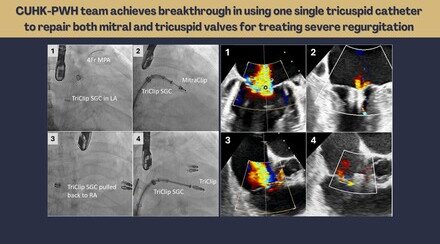CUHK Latest Research Reveals over 100,000 New Non-alcoholic Fatty Liver Cases in Hong Kong Annually
According to a previous study conducted by The Chinese University of Hong Kong (CUHK) in 2012, it is estimated that 27% of the adult population in Hong Kong suffer from nonalcoholic fatty liver disease (NAFLD), the most common chronic liver disease worldwide. However, the incidence of NAFLD is unknown due to scanning limitation and invasive concern. The Department of Medicine and Therapeutics of Faculty of Medicine, CUHK conducted a study on the incidence of NAFLD in Hong Kong from 2008 to 2013 using Proton-magnetic resonance spectroscopy, which is the first of its kind in Hong Kong. The result revealed a high incidence in Hong Kong of 13.5% over 3 to 5 years. The findings have been published in the January 2015 issue of the leading international journal Journal of Hepatology.
A patient has a fatty liver when fat makes up at least 5% of the liver. There are two types of fatty liver, alcoholic fatty liver (AFLD) and nonalcoholic fatty liver (NAFLD). The former is caused by overconsumption of alcohol while the latter is associated with metabolic diseases including obesity, diabetes and hyperlipidemia. Fatty liver disease doesn’t show clinical symptoms in most cases. However, it may progress to cirrhosis and liver cancer.
From 2008 to 2010, the Department of Medicine and Therapeutics of the Faculty of Medicine at CUHK randomly selected 922 subjects to measure their liver fat and fibrosis. Among them, 658 subjects did not have fatty liver disease. After 3 years, 565 of those without fatty liver disease were invited to take the tests again. The result indicated that 76 out of 565 participants developed new NAFLD. Therefore, it is suggested that incidence of NAFLD in Hong Kong is 13.5% over 3 to 5 years.
The research also revealed that the probability of having NAFLD for women aged over 40 years old is 3 to 4 times higher than others, while age is not a risk factor for men. The result showed that of the subjects with body mass index 2both at baseline and follow-up, only 8% developed new fatty liver. In contrast, of those with body mass index 2at baseline but ≥23 kg/m2 at follow-up, 20% developed new fatty liver. This indicated that the incidence of NAFLD is associated with weight gain. In addition, increased waist circumference and deterioration in triglycerides level are also risk factors of NAFLD.
Prof. Henry Chan, Head of Division of Gastroenterology and Hepatology, Department of Medicine and Therapeutics of Faculty of Medicine, CUHK explained, “According to the research data, it is estimated that the annual incidence of NAFLD in Hong Kong is around 3-4%. In another term, there are over 100,000 new cases annually. Fatty liver disease is reversible, which can be cured through healthy diet, sufficient exercise and weight control.”
Prof. Vincent Wong, Professor, Division of Gastroenterology and Hepatology, Department of Medicine and Therapeutics of Faculty of Medicine, CUHK elaborated, “High risk subjects are advised to undergo fatty liver scanning every 3 to 5 years to monitor and maintain liver health. These include people who are overweight/ continue to gain weight, who have increased waist circumference and deterioration in triglycerides level, women over 40 years old as well as metabolic diseases patients such as obesity, diabetes and hyperlipidemia.”

Prof. Henry Chan (right), Head of the Division of Gastroenterology and Hepatology, Department of Medicine and Therapeutics, CUHK ; and Prof. Vincent Wong, Professor of the Division estimate that there would be over 100,000 new cases of NAFLD annually.





























































































































